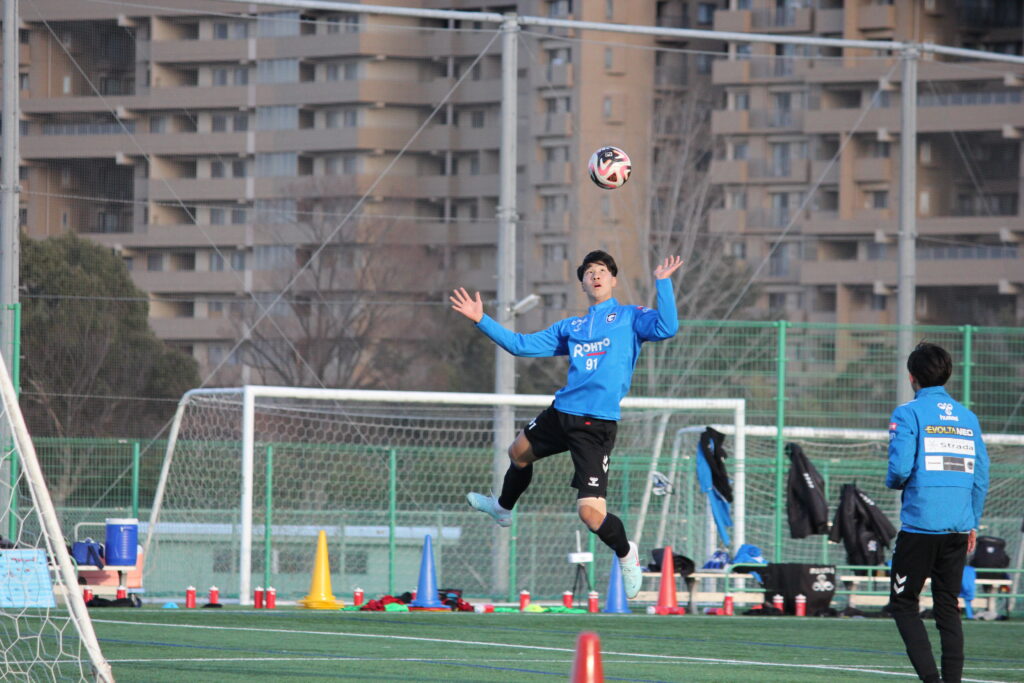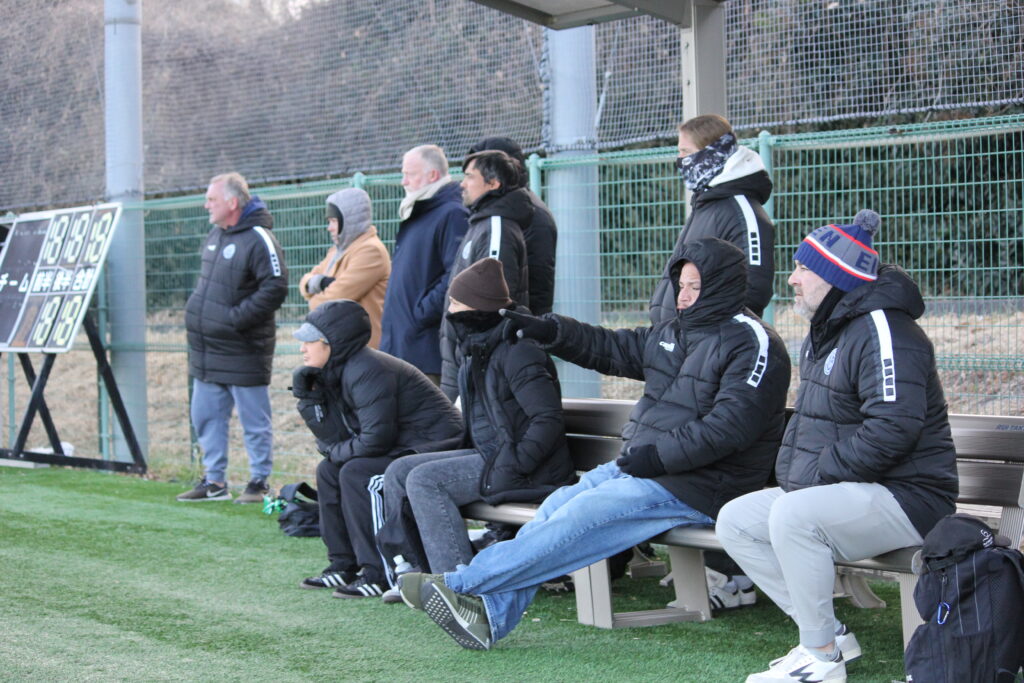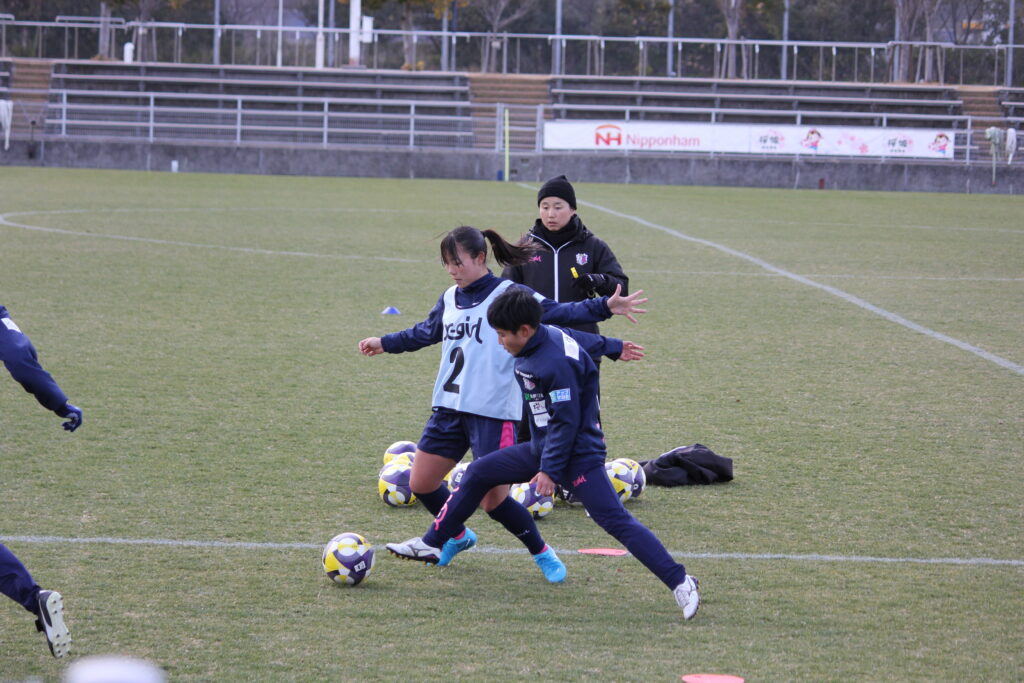Japan Coaching Education Trip: Part 3

In many ways, the professional leagues in the United States and Japan resemble each other.
The J1 League (1993) and Major League Soccer (1996) each kicked off around the same time.
Both leagues have grown at a steady pace and now regularly see attendances north of 20,000.
And both leagues have suffered from a disconnect between clubs pumping money into their academies and having those funds produce results in terms of developing first team players.
At least according to Gamba Osaka Head of Academy Takaaki Hoshihara, who was on hand to give a presentation to 16 different coaches and directors from NorCal Premier Soccer during the latter part of their trip to Japan.
“It’s very difficult for academy players (to make it straight to the first team),” Hoshihara said. “Gamba Osaka won the U18 national title last year, but no players were promoted to the first team.”
The problem, according to Hoshihara and Director of Football Hiroshi Matsuda, lay in the fact that the U18 age group is the highest age group the J League supports below the first team level.
“They’ve started to speak about creating a U21 league. If the U21 league existed, then 3-5 of those players would have had a home to play and continue their development,” Matsuda said. “If we had that, the current U18 players could train with that team, but right now the difference between U18 and the first team is too vast. In Europe there are many U21 leagues, for example Ajax, who we’ve formed a partnership with, there’s Jong Ajax, who play in the second division. But there’s currently no place like that in the J League, which is a huge problem.”

Like in the US, many of these players end up playing soccer at a university instead to bridge the gap.
“There’s always a path back. It would be nice to have the majority of those players play and return, but by sending them there, you never know what kind of environment they’re in, so they rarely come back,” Matsuda said.
What Gamba lack in offering more academy age groups, they make up for in structure, organization, and the belief of nurturing the person just as much as the player during key developmental years.
Gamba believes that sports help develop human potential and in turn, developing the human can only help with the sports side as well.
The club, whose official slogan is “Be The Heat, Be The Heart,” use cutting edge ideas to help their academy players, like hiring a life skills coach who works with players, but also the families of the players in order to create a realistic set of expectations and values.
“Parent education is a key aspect at Gamba Osaka,” said Ravenswood Juniors Soccer Club Girls Director of Coaching Viviana Puebla-Santoyo. “The staff noted that, at times, parental expectations can hinder a child’s development. To address this, a life skills coach works with parents to help them understand how to best support their child while at the academy.”
“I believe many players in our environment would benefit from a program like this,” she added.
From there the NorCal coaches attended a Gamba academy training before heading across town for a visit with rivals Cerezo Osaka.

If Gamba are the highly competitive club, the one that represents the flame of Osaka always sprinting towards the goal, Cerezo are their calming counterparts.
Named after the city’s famous “sakura,” the cherry blossoms, Cerezo aspire to contribute to a sporting culture that nurtures dreams, hopes, and passions and supports the development of regional societies through football.
“We feel that the sakura flower is not only famous for the city, but for the nation as well,” the club’s presentation read. “Sakura continues to give a lot of joy to people in Japan. We would like to give that joy through our club.”
While the club have only won three major trophies since turning professional, their values have helped produce a series of quality players, most notably Shinji Kagawa.
And those values, the NorCal coaches would learn, were highly specific and listed out in order:
- Wow the Cerezo family and enjoy doing it.
- Always aim higher as a team.
- Persist with passion for better results.
- Don’t just follow, do something new.
- Practice to succeed with world-class speed.
- Continually improve yourself.
- Live your life with generosity and gratitude.
- Pass your Cerezo pride to future generations.
According to the staff presenting to the 16 in Japan, these values are so important to Cerezo that the club’s president personally reinforces each of them with not only the players and coaches, but every staff member employed by Cerezo.
“There’s such a strong sense of collective well being and deep respect and honor for everyone, everything, everywhere,” Viviana Puebla-Santoyo said. “It’s fascinating to see how the Japanese culture is so apparent in the way they approach and play football exuding respect, skill mastery, organization, discipline, and consistent steadiness.”
With the presentation complete, NorCal had two items left on the official itinerary: watching the Cerezo women’s first team train before attending the men’s first team match against Shonan Bellmare the following day.
“The purpose of this trip was to have youth football leaders in Northern California experience Japanese football and observe the Japanese way of coaching, by visiting professional academies of boys, girls, men and women in two central cities: Tokyo and Osaka,” said NorCal Premier’s Technical Programs Coordinator, Jovan Yamagishi. “The tour also featured a visit to the Japanese Football Association (JFA) to share ideas on what it means to develop a young footballer. Throughout the trip it seemed like members of the coaching education tour were positively impacted by the lessons learned from Japanese society that had a huge influence on the way Japan went about coaching with organization, structure and efficiency.”
“I believe we were reminded that here in NorCal, we are on the right path, only we have to be more ingrained in our own journey as educators of football,” Yamagishi added. “To consider more in the details of what we coach and most importantly, how we coach. Too often, we wonder what we must do as coaches. However, the real question should be centered around what they need and how we can help them. The more we ask this question as educators, I feel we will have happier players, players who are willing to share their joy for football with others – as a result, creating leaders of our world.”












